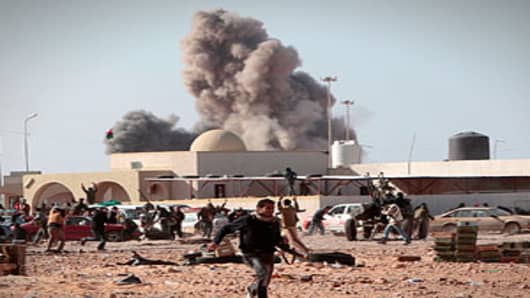Fears that the world economy is facing another downturn are being overplayed, despite the political upheaval caused by recent unrest in the Middle East and the earthquake and subsequent tsunami in Japan, Jim O'Neill, chairman of Goldman Sachs Asset Management, said.
While investors had been expecting to be focusing on the challenges facing the European Monetary Union (EMU) in March, world events had overtaken them and helped to stoke fears of a repeat of the economic crisis of 2008, O'Neill wrote in a market note.
But the US is showing continuing strong signs of economic recovery while inflation fears in China are "backward looking," he added. The G7's firm stance in expressing its support for the yen following the Japanese quake also showed it was still capable of exerting its influence on world markets, according to O'Neill.
He cited data which showed the US unemployment claim count for the week ending March 12 fell by 16,000 to 385,000 as one sign of improving economic conditions.
Meanwhile, another leading indicator of US economic growth, the Philadelphia Federal Business Survey, showed a significant improvement in the manufacturing industry as new orders hit a record high of 60.1 on the index overall.
In terms of the Chinese economic outlook, while investors remain concerned over inflation, the economy is set for a slower pace of growth in the future, O'Neill said.
"The Goldman Sachs China Financial Conditions Index (FCI) has tightened significantly. Its current performance suggests that China’s growth is probably going to be softer in months ahead," he wrote.
China Slowdown
"While there is no doubt that many China bears will seize on this if it happens, it would be a good development now," he said.
"Along with the FCI, the coincident and actual lead economic indicator, the so-called Goldman Sachs China Activity Index (CAI) has also slowed. It is clear that this is what Chinese policy is trying to achieve, although of course, they don’t want growth to slow too much," he added.
One area of concern highlighted by O'Neill was in energy. Both the continuing unrest in the Middle East and concerns over the extent of the radiation leak at the Fukushima nuclear power plant had helped push oil prices up.
The Japanese nuclear reactor meltdown had also led to suggestions by some countries, notably Germany and China, that they would review nuclear power requirements.
"All of these issues have escalated the energy issues further and added the upward pressures on crude oil prices," O'Neill said. "How all of this impacts the planned growth of nuclear power around the world has yet to be determined, but the energy challenge just got trickier."
While O'Neill said he had "no idea where oil prices are going to go next" and it was not impossible they would fall sharply in the next year, he warned global economic leaders needed to be ready for the possibility oil could rise further on the back of tightening fiscal conditions.


